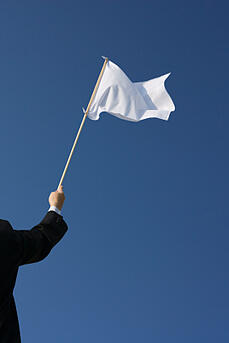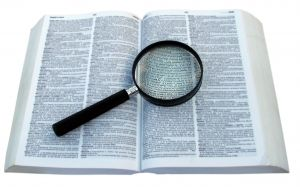Written by Jonathan Bailey, copyright and plagiarism consultant with CopyByte and author of PlagiarismToday.
 Since Jessica last talked about this case, Johann Hari, a columnist and interviewer for Britain’s “The Independent” has been forced to watch as the allegations against him deepen and the damage to his reputation and his paper’s grows by the day. According to readers, Hari took quotes from other sources and presented them as if they were things said in his interviews.
Since Jessica last talked about this case, Johann Hari, a columnist and interviewer for Britain’s “The Independent” has been forced to watch as the allegations against him deepen and the damage to his reputation and his paper’s grows by the day. According to readers, Hari took quotes from other sources and presented them as if they were things said in his interviews.
Though Hari didn’t claim other’s words as his own, over the past few weeks Hari has been suspended from the paper pending an internal investigation, which is expected to take two months, and has already had his prestigious George Orwell prize revoked.
Whether or not the scandal rises to the level of plagiarism, something Hari denies even in his apologies, it’s clear that it has brought a great deal of disrepute both to his name and a good deal of headache to The Independent, all at a time when British journalism is already reeling from other, much larger scandals.
However, the entire incident could have been easily avoided. Technology exists already that can detect these kinds of reuses and give businesses a chance to correct these problems before they become issues “in the wild”.
Despite this, most companies don’t take advantage of these tools. Fearing either high costs or employee backlash. But as the Hari case proves, there’s a lot to be risked by not taking preventative steps and, sadly, it’s not just newspapers and magazines that need to be concerned.
More Than Just Plagiarism Scandals
Though it’s tempting to think plagiarism and copy detection tools are useful solely for detecting plagiarists, it’s far from the case. As the Hari case shows, there’s a wide variety of ways content can be reused that creates problems and, as such, it’s generally worthwhile to detect and prevent duplicate content whenever possible.
Consider just some of the potential problems that can arise from unethically or unlawfully duplicated content:
- Legal Issues: Content reuse is often an infringement of the original author’s rights and, in those cases, the costs can be dire. Even cases that are quickly settled often costs tens of thousands of dollars in legal fees.
- Reputation Damage: Any content that you present as original but is later found to be duplicated will hurt your reputation and can damage your company’s name for years to come.
- SEO Problems: Search engines strongly favor original content so, when they detect duplicate entries they favor the original source when possible and punish the duplicate site, often broadly.
- Internal Problems: Not only does resolving a content duplication problem create additional work for others in the company as they have to investigate and correct the issue, but it can cause internal struggles as some fear what the incident may mean for them. In extreme cases, it can even lead to a culture of dishonesty.
- Job Loss: In addition to the internal struggles of a company, it is almost inevitable that more than just the person who did the deed will lose their job. For example, with the Jayson Blair scandal, at least two editors who oversaw Blair’s plagiarism were also forced out.
But while most of the major news stories have centered around print publications and their plagiarism issues, the truth is that all companies need to pay attention to their content and ensure its originality, lest it come back to bite them much harder at a later date.
Mass Media Law and Ethics, Not Just for Journalists
While it is easy to see the importance of content detection for journalism institutions and other publishers, what if your company sells bikes or carpet?
One of the major changes that the Internet has brought to us is that any company, no matter what product they sell or what size they are, has the potential to reach out to a global audience. With that immense power also comes a great deal of responsibility.
After all, the door swings both ways. While well-written original content on your site or in your company newsletter can get you business from all over the world, duplicate content can damage your reputation anywhere that Google can reach or even invite a lawsuit from another country.
To avoid this, you need to be thinking about the dangers before you hit publish and taking steps to prevent and mitigate problems before they arise.
Doing so, fortunately, is very easy but one has to be willing to deal with the potential threat even though no imminent danger may be staring at them.
Dealing with the Threat
Preventing the Web from biting your business means stopping unethical or unlawful duplicate content before it appears online. That, in turn, means addressing the issues beforehand and not waiting until later to deal with the issue.
In general, here are a few steps that every business should take:
- Address the Issue: Talk about the issue with those who operate your site and let them know of the dangers, both to the company and to their job. Let them know that the company takes these matters seriously and will not hesitate to act.
- Build a Policy: If you publish enough content, either online or off, you need to plan for the inevitability that some content will slip through, either by accident or by intent. You need to have a policy for dealing with such cases that includes both how to address the content and possible reactions to the person who published it.
- Check for Problems: If possible, use a plagiarism detection service to check works before they go online so you can address unexplained duplication before publishing it. If that isn’t practical, then perform spot checks of content put online, both to see if it is as original as presented and if others are misusing it.
- Address Issues Swiftly, Sternly and Fairly: When and if a problem does arise, deal with the matter immediately and sternly. Ideally, you should be following the policy created in step 2.
- Be Transparent: If a problem is discovered, be transparent about it. First and foremost, be transparent with your employees and coworkers, If the issue is one of great public interest, transparency is due there as well.
If you take these steps, not only will you have fewer problems, but if they do arise they will be less serious and less damaging.
All in all, this is truly a situation where an ounce of prevention is worth many pounds of cure.
Bottom Line
Almost certainly, “The Independent” could have avoided much of its current headache and problems if it had been checking Hari’s work along and along. They might have spotted the issue and been able to raise it with him in private, both sparing his career and the paper the reputation damage.
That, in turn, is one of the most important things to remember about these issues. Addressing them in the workplace might seem like you’re creating a hostile situation with your employees and coworkers, but such a system can just as easily help them as well and often does.
After all, for every scandal that’s damaged a company, there have been many that were narrowly avoided, detected by software or eagle-eyed editors, and corrected to ensure one mistake doesn’t sink a company or ruin a career.
In short, if done well, addressing these issues early helps everyone, not just the bottom line.
 Dan Kimber, a former columnist at Glendale News-Press, who was accused and found guilty of plagiarism back in 2003, just published his first blog post on Montrose Patch.
Dan Kimber, a former columnist at Glendale News-Press, who was accused and found guilty of plagiarism back in 2003, just published his first blog post on Montrose Patch.
 Science Reporting and journalism have changed quite a bit over the last several decades. In the past, there were only a few central news sources that people got their scientific information from. For example, viewers would tune into the
Science Reporting and journalism have changed quite a bit over the last several decades. In the past, there were only a few central news sources that people got their scientific information from. For example, viewers would tune into the  Senator John Kerry recently made some very controversial statements when speaking on MSNBC’s “Morning Joe” segment.
Senator John Kerry recently made some very controversial statements when speaking on MSNBC’s “Morning Joe” segment. Since Jessica
Since Jessica  It’s been only a few months since German Defense Minister Karl-Theodor zu Guttenberg resigned after being accused of
It’s been only a few months since German Defense Minister Karl-Theodor zu Guttenberg resigned after being accused of  Johann Hari has certainly set off a media frenzy the past two weeks challenging the definition of plagiarism. Last week it was discovered that Hari, columnist for the British newspaper the
Johann Hari has certainly set off a media frenzy the past two weeks challenging the definition of plagiarism. Last week it was discovered that Hari, columnist for the British newspaper the Washington Post spokesman Patrick Pexton recently wrote an article about
Washington Post spokesman Patrick Pexton recently wrote an article about  One thing often said about rumors or slander is that once the information is leaked, it’s out permanently. In other words, even if a rumor is proven to be completely false, the information still exists in the minds of all the people who already heard it.
One thing often said about rumors or slander is that once the information is leaked, it’s out permanently. In other words, even if a rumor is proven to be completely false, the information still exists in the minds of all the people who already heard it. It might sound like some sort of league of superheroes, but not everyone is keen on the so called ‘plagiarism hunters.’
It might sound like some sort of league of superheroes, but not everyone is keen on the so called ‘plagiarism hunters.’